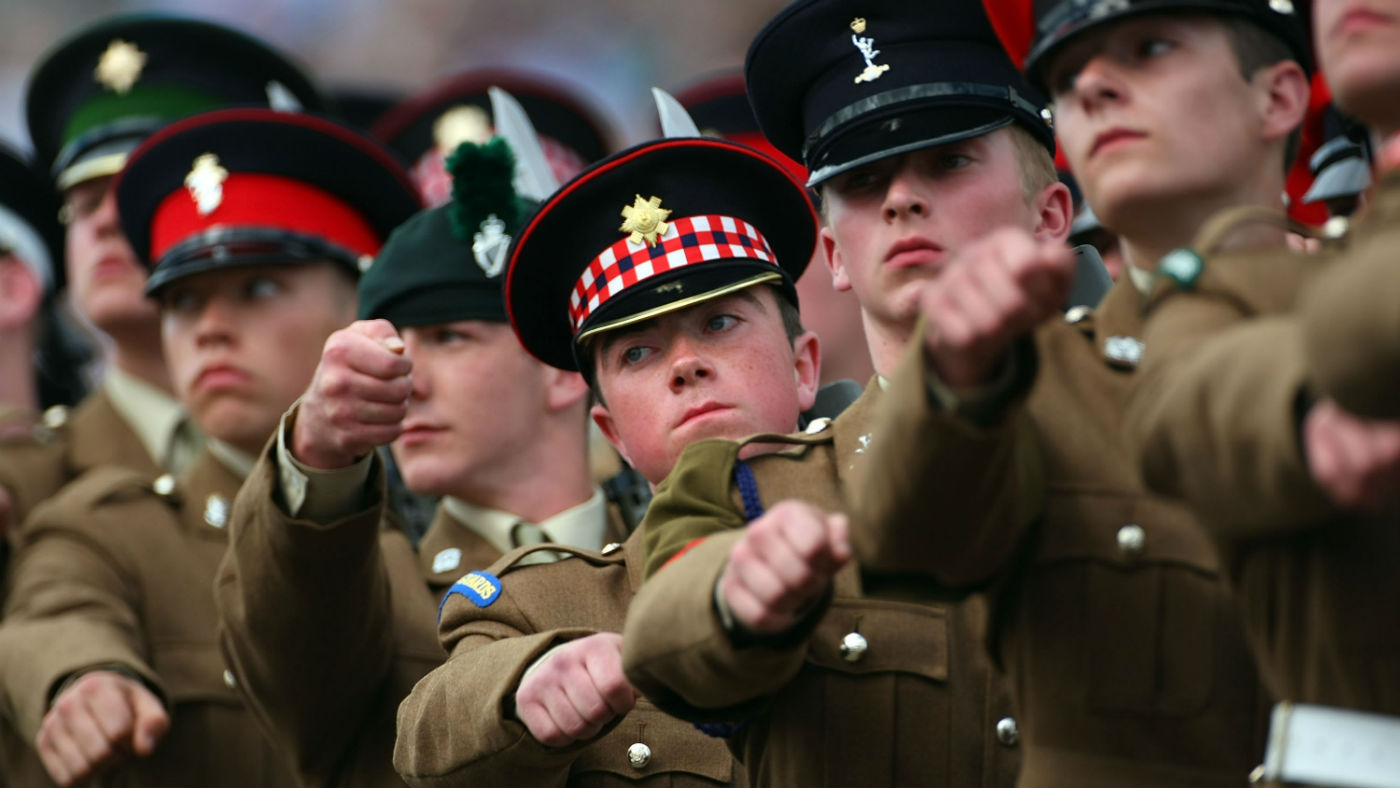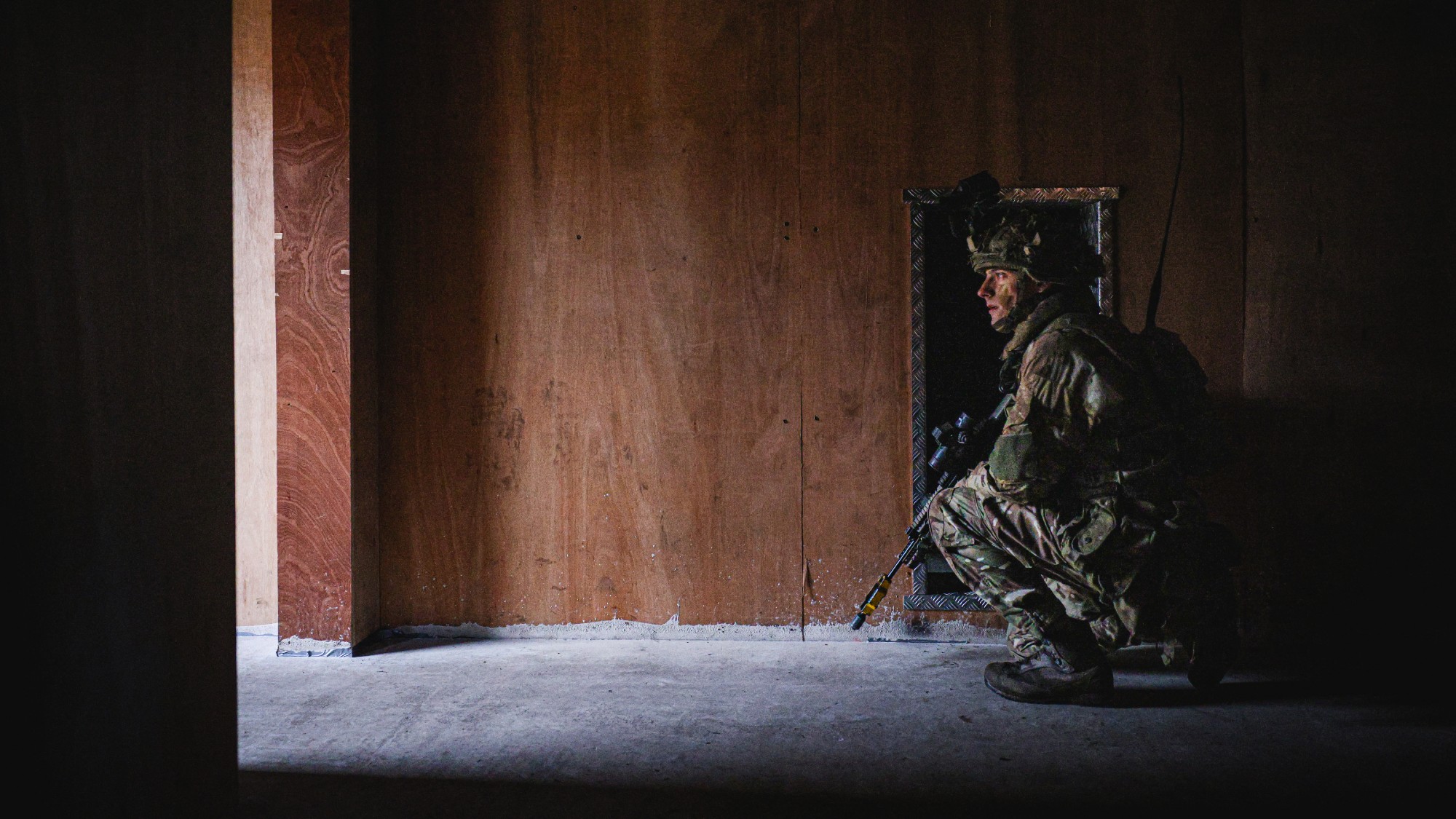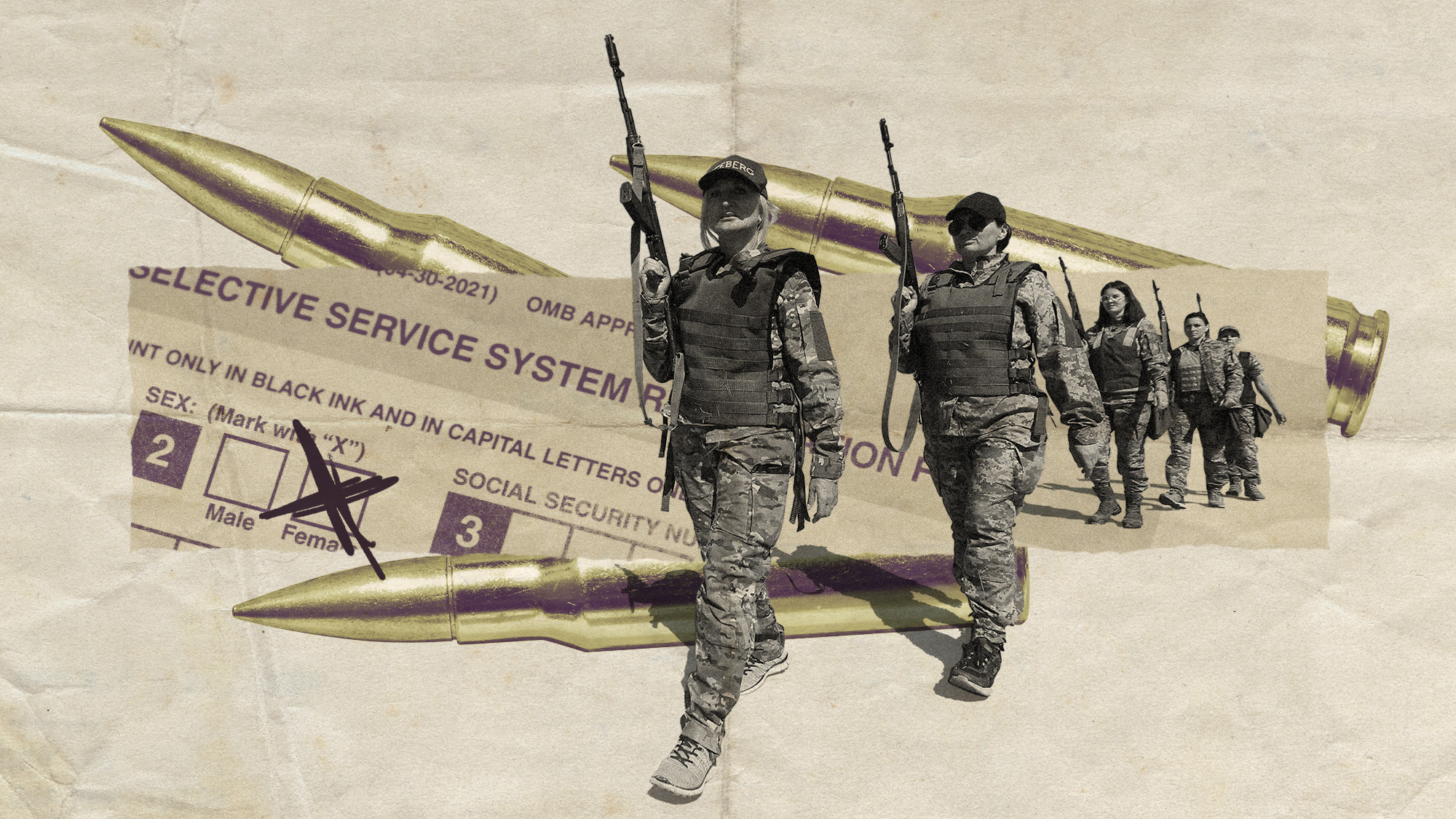British soldiers to face ten-year cut-off for historical prosecutions
New protections for army veterans accused of historical abuses comes amid furore over Bloody Sunday charges

A free daily email with the biggest news stories of the day – and the best features from TheWeek.com
You are now subscribed
Your newsletter sign-up was successful
British Army veterans will be protected from prosecution for alleged historical abuses under plans to introduce a ten-year limit on new cases.
The Times reports the Defence Secretary, Gavin Williamson, will bring forward legislation in this year’s Queen’s Speech “after growing pressure on the government to address the legacy of the Troubles in Northern Ireland”.
Next week, four army veterans are expected to be charged with murder for their part in Bloody Sunday, where 14 people we killed when British soldiers opened fire on a crowd of civil rights demonstrators in Derry, Northern Ireland in 1972.
The Week
Escape your echo chamber. Get the facts behind the news, plus analysis from multiple perspectives.

Sign up for The Week's Free Newsletters
From our morning news briefing to a weekly Good News Newsletter, get the best of The Week delivered directly to your inbox.
From our morning news briefing to a weekly Good News Newsletter, get the best of The Week delivered directly to your inbox.
A 12-year inquiry into the shooting, which is seen as one of the defining moments of the 30-year conflict, concluded paratroopers “lost control” and that none of those shot were “posing any threat of causing death or serious injury”.
Following the publication of the Saville report in 2010, then-prime minister David Cameron apologised for the army’s actions, branding them “unjustified and unjustifiable”.
However, the issue has resurfaced again after The Daily Telegraph first reported that a number of paratroopers in service that day could face charges including murder, attempted murder, grievous bodily harm and perjury.
The prospect of British soldiers going on trial for actions they committed while on duty has deeply divided public opinion.
A free daily email with the biggest news stories of the day – and the best features from TheWeek.com
“Families will be devastated if no murder charges are brought” says the Telegraph, “while the prospect of dragging Army veterans, some in their late 70s, into the dock will provoke a furious reaction and accusations of a betrayal of troops”.
Williamson, who has repeatedly decried what he calls a “witch hunt” against ex-servicemen, has said the case relating to Bloody Sunday “completely turns the stomach of the British people”.
Meanwhile, the ex-head of the British Army, Lord Dannatt, said it was “part of a wider Sinn Fein agenda to rewrite history to create the narrative that Crown Forces were oppressive and that people were fighting for their rights”.
“It rather overlooks the fact that the vast majority of deaths that occurred in the Troubles were criminal acts carried out by terrorists,” he told the Daily Mail.
There is also outcry at what many see as a double standard in the law.
If convicted of murder, army veterans could face life in jail. By contrast, under the terms of the Good Friday Agreement terrorists subsequently convicted of atrocities committed during the Troubles can be jailed for a maximum of two years.
Many argue a statute of limitations should be introduced, with the 1998 peace agreement as a cut-off date.
Whitehall sources last week confirmed to the Daily Express, “there was still no appetite for a statute of limitations, with ministers preferring instead to hold investigations in which witnesses are protected by prosecution amnesties”.
However, Williamson has now said the government “has to do something to make sure our soldiers and veterans have the protection they deserve”.
-
 James Van Der Beek obituary: fresh-faced Dawson’s Creek star
James Van Der Beek obituary: fresh-faced Dawson’s Creek starIn The Spotlight Van Der Beek fronted one of the most successful teen dramas of the 90s – but his Dawson fame proved a double-edged sword
-
 Is Andrew’s arrest the end for the monarchy?
Is Andrew’s arrest the end for the monarchy?Today's Big Question The King has distanced the Royal Family from his disgraced brother but a ‘fit of revolutionary disgust’ could still wipe them out
-
 Quiz of The Week: 14 – 20 February
Quiz of The Week: 14 – 20 FebruaryQuiz Have you been paying attention to The Week’s news?
-
 Is conscription the answer to Europe’s security woes?
Is conscription the answer to Europe’s security woes?Today's Big Question How best to boost troop numbers to deal with Russian threat is ‘prompting fierce and soul-searching debates’
-
 Is UK's new defence plan transformational or too little, too late?
Is UK's new defence plan transformational or too little, too late?Today's Big Question Labour's 10-year strategy 'an exercise in tightly bounded ambition' already 'overshadowed by a row over money'
-
 The state of Britain's Armed Forces
The state of Britain's Armed ForcesThe Explainer Geopolitical unrest and the unreliability of the Trump administration have led to a frantic re-evaluation of the UK's military capabilities
-
 Is Europe's defence too reliant on the US?
Is Europe's defence too reliant on the US?Today's Big Question As the UK and EU plan to 're-arm', how easy will it be to disentangle from US equipment and support?
-
 Is the British Army ready to deploy to Ukraine?
Is the British Army ready to deploy to Ukraine?Today's Big Question The UK 'would be expected to play a major role' if a peacekeeping force is sent to enforce ceasefire with Russia
-
 British defence: the crisis in the Armed Forces
British defence: the crisis in the Armed ForcesTalking Point Depleted military power may not be able to meet its own commitment to up defence spending to 2.5%
-
 The issue of women and conscription
The issue of women and conscriptionUnder the radar Ukraine military adviser hints at widening draft to women, as other countries weigh defence options amid global insecurity
-
 Grant Shapps goes to war on military's 'woke' diversity policies
Grant Shapps goes to war on military's 'woke' diversity policiesTalking Point Defence secretary condemns 'extremist culture' as Army reportedly plans to relax security checks on overseas recruits